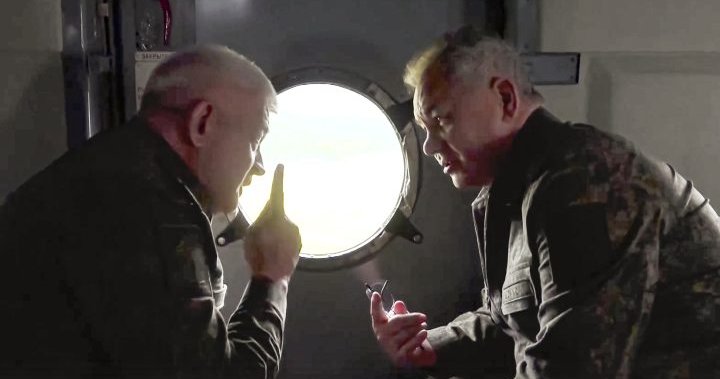Following Russia’s most significant political crisis in years, there is much uncertainty surrounding the future of Yevgeny Prigozhin, the former ally of President Putin who led a short-lived armed rebellion, as well as his Wagner mercenary group and the military chiefs with whom he clashed over the conduct of the war in Ukraine. Furthermore, the fate of the 16-month-old invasion and the future of President Putin himself are also shrouded in uncertainty.
The feud between Yevgeny Prigozhin, leader of the Wagner Group, and Russia’s top military brass erupted into a mutiny, with fighters from the mercenary group temporarily seizing a city in southern Russia before turning back after less than 24 hours. The Kremlin announced that Prigozhin would be moving to Belarus and receiving amnesty along with his soldiers, but Russian media reported that a criminal investigation against Prigozhin was still ongoing, and his whereabouts were unknown.
On Monday, Russian Defense Minister Sergei Shoigu made his first public appearance since the rebellion, inspecting troops in Ukraine and releasing a video aimed at projecting a sense of order. Russian media speculated that Shoigu and other top military leaders may have lost Putin’s confidence and could be replaced. General Staff chief Gen. Valery Gerasimov, another target of Prigozhin’s grievances, has not made a public appearance.
The deal brokered by Belarusian President Alexander Lukashenko between Prigozhin and the Kremlin remains uncertain. Reports suggest that the criminal case against Prigozhin has not been closed, potentially leaving him vulnerable to arrest and extradition even in Belarus. Prigozhin appeared nonchalant in the last footage taken during the rebellion, suggesting that he didn’t view it as a failure.
Prigozhin’s clash with Russia’s military leadership dates back to their intervention in Syria, where the Wagner Group was also active. Putin remained on the sidelines of the feud, while Shoigu and Gerasimov remained silent, indicating uncertainty surrounding Putin’s support. Observers believe that Putin’s failure to resolve the feud may have encouraged Prigozhin to pursue a more drastic course of action.
Some analysts speculate that Prigozhin’s rebellion was an attempt to save the Wagner Group from being dismantled. Putin has ordered all private military companies to sign contracts with Russia’s Defense Ministry by July 1, which could potentially threaten the future of the group. Prigozhin’s mutiny was not seen as an attempt to seize power but rather a desperate move amid his escalating rift with Russia’s military leadership.
The U.S. reportedly had intelligence suggesting that Prigozhin had been amassing his forces near the Russian border, indicating that the rebellion may have been premeditated. However, Prigozhin claimed that the rebellion was a response to an attack on his field camps in Ukraine by the Russian military, which he alleged resulted in the deaths of many of his men. The Defense Ministry denies attacking the camps.
The Russian parliament is set to consider a bill that would regulate the activities of private military companies. The head of the defense affairs committee in the lower house, Andrei Kartapolov, stated that it would be logical to continue using Wagner troops, as they are considered the most capable unit in Russia. It remains unclear whether the Wagner Group would remain intact or if some troops would be offered contracts with the Defense Ministry.
The impact of the 24-hour rebellion on the war in Ukraine is uncertain. Western officials believe that Russia’s troops suffer from low morale, and the withdrawal of the Wagner troops, who played a significant role in the battle for Bakhmut, could have implications for the conflict. The UK Ministry of Defense noted that Russia may not have significant ground forces reserves to reinforce against multiple threats in various sectors of the war.
Leaders from the U.S. and several European allies of Ukraine discussed the events in Russia, but their public comments have been restrained. NATO Secretary-General Jens Stoltenberg referred to the crisis as an internal matter for Russia, while EU foreign policy chief Josep Borrell suggested that the rebellion revealed cracks in Russia’s political system and described the Wagner Group as a “monster” that is now turning against its creator.
Denial of responsibility! VigourTimes is an automatic aggregator of Global media. In each content, the hyperlink to the primary source is specified. All trademarks belong to their rightful owners, and all materials to their authors. For any complaint, please reach us at – [email protected]. We will take necessary action within 24 hours.


